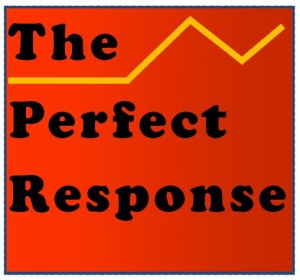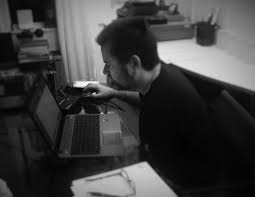Does a life continue to hold meaning if it has to be sustained remotely, with devices that only deliver small fragments of ourselves to others?
![]() A seminar I regularly teach in the Philosophy of Communication started at the end of January in a room that comfortably held it’s 16 members, most nearing graduation. The course considers a range of eclectic thinkers, many focused on how high expectations for communicating with others runs afoul of unseen obstacles.1 A key premise in the course is that we overestimate what we think we can achieve when we address others. A continuous thread develops on what the effects of “disembodied” communication has done to us as a species. For most human history life happened in small groups and communities. Communication was in real time and close spaces. It was the early Victorians who began to see the wonders of “communication at a distance,” triggered first by the telegraph, and later with electronic refinements that made phones, radio and all of our modern paraphanalia possible. Charles Cooley, one of the founding figures in the discipline of sociology, took delight in the possibilities of the idea of mass communication. Others like Henry David Thoreau were not so sure. Thoreau famously pushed for the kind of life that would be fully grounded in the world outside one’s own door. “We are in great haste to construct a magnetic telegraph from Maine to Texas,” he noted, but folks in distant places may “have nothing important to communicate. . .”
A seminar I regularly teach in the Philosophy of Communication started at the end of January in a room that comfortably held it’s 16 members, most nearing graduation. The course considers a range of eclectic thinkers, many focused on how high expectations for communicating with others runs afoul of unseen obstacles.1 A key premise in the course is that we overestimate what we think we can achieve when we address others. A continuous thread develops on what the effects of “disembodied” communication has done to us as a species. For most human history life happened in small groups and communities. Communication was in real time and close spaces. It was the early Victorians who began to see the wonders of “communication at a distance,” triggered first by the telegraph, and later with electronic refinements that made phones, radio and all of our modern paraphanalia possible. Charles Cooley, one of the founding figures in the discipline of sociology, took delight in the possibilities of the idea of mass communication. Others like Henry David Thoreau were not so sure. Thoreau famously pushed for the kind of life that would be fully grounded in the world outside one’s own door. “We are in great haste to construct a magnetic telegraph from Maine to Texas,” he noted, but folks in distant places may “have nothing important to communicate. . .”
Tracing the rise of the tools that make it possible to send verbal artifacts of ourselves to others is a long narrative, especially in terms of the now accepted view that our heads are often far removed from wherever our bodies may be situated. Demands on our attention can come from anywhere.
Did we lose too much to lose the human birthright of proximity?
One of theorists we considered was Joshua Meyrowitz, who noted that electronic media “destroy the specialness of time and place.” Building on his concerns are other media theorists, he explores what happens to the essential communication model of conversation when it is understood to not be direct or synchronous. Most online platforms we use deliver content in this form. The seminar raised arguments and counterarguments about the effects of living out-of-sync with only verbal or visual fragments.
One day in March we discovered the that the essays we discussed had prepared us for more than these thought experiments. The seminar became a distance-learning exercise created by the pandemic. We were in our own spaces and trying to stay in touch to continue to talk about the virtues of being in the same space.
My students, who are far more savvy in using social media, suddenly faced a fully digital future where the world was to be experienced mostly from the old bedrooms they thought they had left for good when they moved to campus. And I suddenly felt like a performer without an audience. Can a seminar based on discussion of common readings really work online? Does it mean as much to connect only with words?
To be sure, campuses have the tools and platforms to deliver a lot of material to students. But is the residential experience easily expendable? Did we lose too much to lose the human birthright of proximity?
Most Americans who recently had outside commitments to jobs, organizations or schools are now asking a different form of the same question. Does my work flourish in close contact with others? Is the phone or a Zoom link enough? And most importantly, does a life hold meaning if it has to be sustained by others remotely?
Lately, some of my students have reported how much they miss portions of their prior circumstances based on a lot of face-to-face interaction. I suppose that view confirmed my own bias as well. It also made us pause to consider what we’d lost.
____________
1The course included a number of readings by Sherry Turkle, Kenneth Gergen and others, and three books: John Peters’ Speaking Into the Air: A History of the Idea of Communication, Joshua Meyrowitz’s No Sense of Place: The Impact of Media on Social Behavior, and Gary Woodward, The Perfect Response, Studies of the Rhetorical Personality.
![]()



